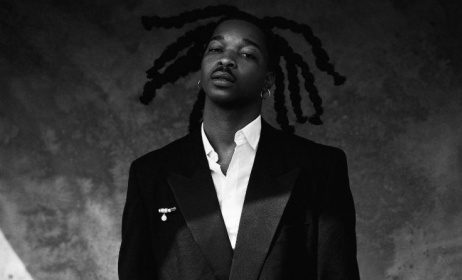A review of album 'Igba ndi eze' by Akunwafor Ezigbo Obiligbo
An album review of one of Nigeria's most popular ethno-traditional artistes and albums.
Driving to work one morning, I thought to dig out some of my old cassette tapes to play on the journey through the long and stressful Lagos traffic. I stumbled on an old favourite of mine, in an old battered blue case, with barely legible letters, which read ‘Ezigbo Obiligbo- Igba Ndi Eze’. A relic of my cassette acquisition habit of the 1970’s and 1980’s.
For those who are unaware, Akunwafor Ezigbo Obiligbo was a famous minstrel from Nteje in the eastern part of Nigeria. Akunwafor (his Traditional “Ozo” Chieftaincy title) , had a career spanning from the 1930’s till his death in the mid- 80's. He was a Master lyricist, composer, poet and exponent of the “Ekpili” style and master of the Native Thumb Piano, similar to the Mbira of Southern Africa, but marginally different in design.
Akunwafor Obiligbo was born sometime around 1904. His account being that his musical calling came to him in a dream, sometime in 1932. He began performing, as one of many Traditional musicians in the Anambra area of eastern Nigeria and mostly to audiences at funerals, weddings and other Traditional ceremonies. Obiligbo’s popularity grew exponentially driven by his powerful lyrics- steeped deeply in traditional idiom and with a fair dash of praise-singing to boot.
Obiligbo left a huge body of work, mostly on the Gramophone Record format, but many of his greatest works have been preserved, especially those recorded on the pioneering Nigerphone Record label at Onitsha owned by the famous Nigerian businessman of the early 20th century- C.T. Onyekwelu. This was the most advanced (if not the only) facility available in the East of Nigeria at the time i.e. the 30’s-50’s and was the forebear to subsequent recording studios/companies like Rogers All Stars and Tabansi Records. The tracks were subsequently released by Onyekwelu's employee Chief Emeka “Melody” Okpalo through his Melody Record's Company.
The album- Igba Ndi Eze- review
This album is reputed to have been recorded in 1958 and is in my view – one of the biggest selling traditional music albums in Nigerian history. This is for the following reasons:
- The album is still in demand in record shops all across Igbo-land Nigeria, 56 years after and is still very much available for purchase, having been re-printed and released several times. Based on demand.
- It has enjoyed airtime on local and national radio stations in Nigeria for several years and continues till date, albeit much less than in the past.
We shall now travel through the track-list:
Track One ‘Igba Ndi Eze’. The title track.
This is Obiligbo’s most popular recording of all time. The track starts with the trade-mark four bar Ubo intro and the unforgettable evergreen chorus- “Igba Ndi Eze Ezugo” (“The dance or beat of the Kings is complete and ready to go”)and Obiligbo’s vocal response in the call and response pattern- “Ezigbo nwozoka na egbu nwa mpama”, followed by his further responses “Ndi Ozo na eme ego ka fa lutalia”( The Chiefs are spending money like they created it); “Ndi Ozo na gba egwu ka fa gbata luya” (The Chiefs are dancing like they created dance). His vocal response then changes in the second part of the song to a praise-singing in honour of some famous Chiefs of Igbo-land (in eastern Nigeria) e.g “Oyi mu Mayor Nwa Udenka bu ndi eze kwe sili (“My Friend Mayor the son of Udenka, is fit to be a King”) being in praise of the then a popular Chief in the Anambra area. The most telling trait of this track and indeed all of Obiligbo’s compositions, being the slow start and gradual build-up to a feverish crescendo.
Track Two- ‘Ekwueme Zulu Ife fa na eme’
This track being in praise of a popular social club- the Ekwueme Social Club of Nigeria. The song extols the virtues of the club with the chorus being in the standard response pattern- “Ima ro fa hmm..Ekwueme Nigeria, Ima ro fa!” (Don’t you know them, Ekwueme of Nigeria”). Obiligbo begins by extolling the virtues of this Club, citing their good works- via social projects and their name which literally means, “We keep our promises”. He then launches into individual praise-singing to individual members of this club e.g. “Michael Nwa Nsofor bu ndi Ekwueme O” (Michael son of Nsofor is a member of Ekwueme)
Track Three – ‘Ude Nweze’
This starts off with the standard Thumb Piano intro but this time with a six-bar intro and the Chorus this time rings out “Ude Nweze, mma cho akunnaya, udenweze” (Ude the son of Nweze, I shall seek the wealth of his fathers) which I translate rather vaguely to be a song in praise of a local Chief Udeze, possibly in commemoration of the death of his father.
Track Four- ‘Ekiliwo (Onwa)’
My favourite track on this album and unlike the other tracks in this album more typical of Obiligbo’s deep lyrical and idiomatic style. The track starts off deceptively slowly with the same old Ubo Intro but quickens into a feverish paced Igba beat with a more complex call and response pattern, with Obiligbo and his backing vocalists alternating the call and response function. The chorus being “Onwa, Onwa” to which Obiligbo would respond with the Chorus Ekiliwo, Ekiliwo gba mma, Onwa cho leziokwu” and to which there would be an alternate chorus response by his backing singers “Onuora na nweke Onwa”.A truly incredible piece of musical arrangement and by far one of the best of his compositions/recording.
Track Five: ‘Okacha Igbo Igwe Ilonze’
This song is in praise of the Igwe of Abagana- Igwe Ilonze with the title literally meaning- Igwe Ilonze the greatest King of Igbo land. The chorus (“Igwe Okacha Igbo Ilonze”) mirroring the title and with Obiligbo’s lyrics extolling the greatness of this King.
Track 6: ‘Onwu Ukia Di Ogbu’
Another song where Obiligbo exploited his depth of knowledge of Igbo idioms and lyrical complexity. The main body of lyrics of this song being a story about the search for truth and explanation of the mystery of death on earth by the inhabitants of the earth. Emissaries from the animal were sent to God for answers to the world’s problems- especially death
Summary
Overall this album is a veritable exhibition of the ancient art-form of Ekpili music, of which Obiligbo remains one of the greatest exponents. Whilst he may have passed on over 30 years ago, his treasured place in the heart of his countrymen is evidenced by the continuous airplay this album continues to enjoy, 56 years after its release. Whilst Obiligbo may not be a house-hold name for younger Nigerians, his importance to the older generation was underscored by a rare deviation by Nollywood from its standard fare, to dedicate a bio-pic to this great musician ‘Obiligbo Onye Ozioma” (Obiligbo the positive messenger), which features some of the songs on this album.
In conclusion this album is strongly recommended by anyone curious about Nigerian traditional music and looking to explore the ancient Ekpili style of eastern Nigeria in some detail. You could definitely do worse.





































Comments
Log in or register to post comments